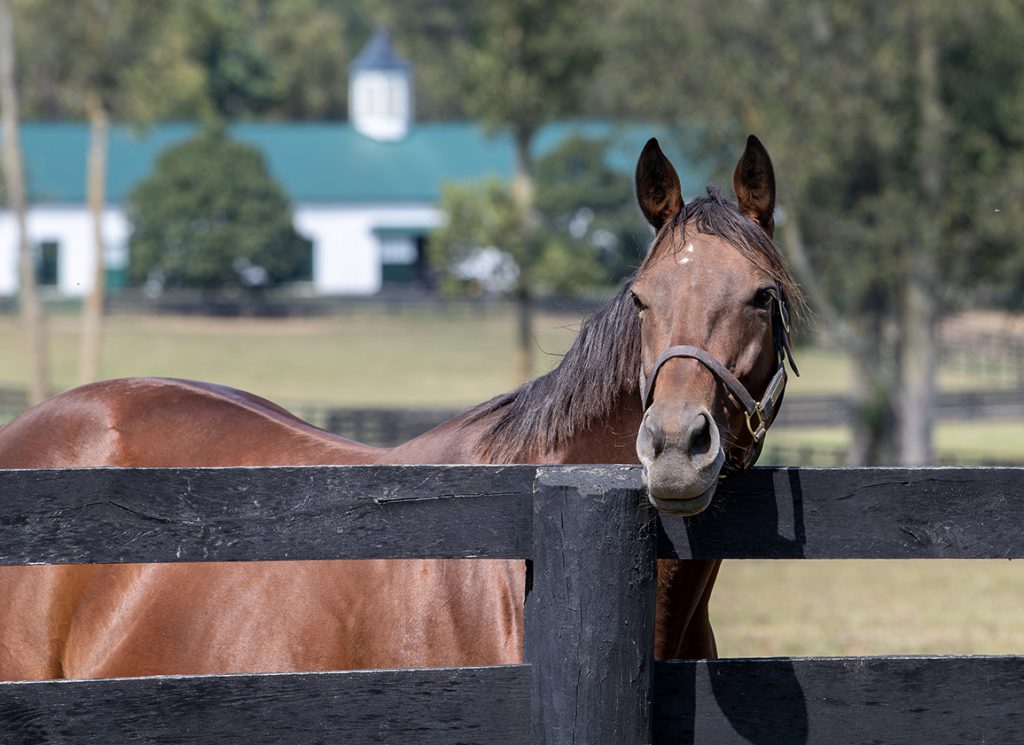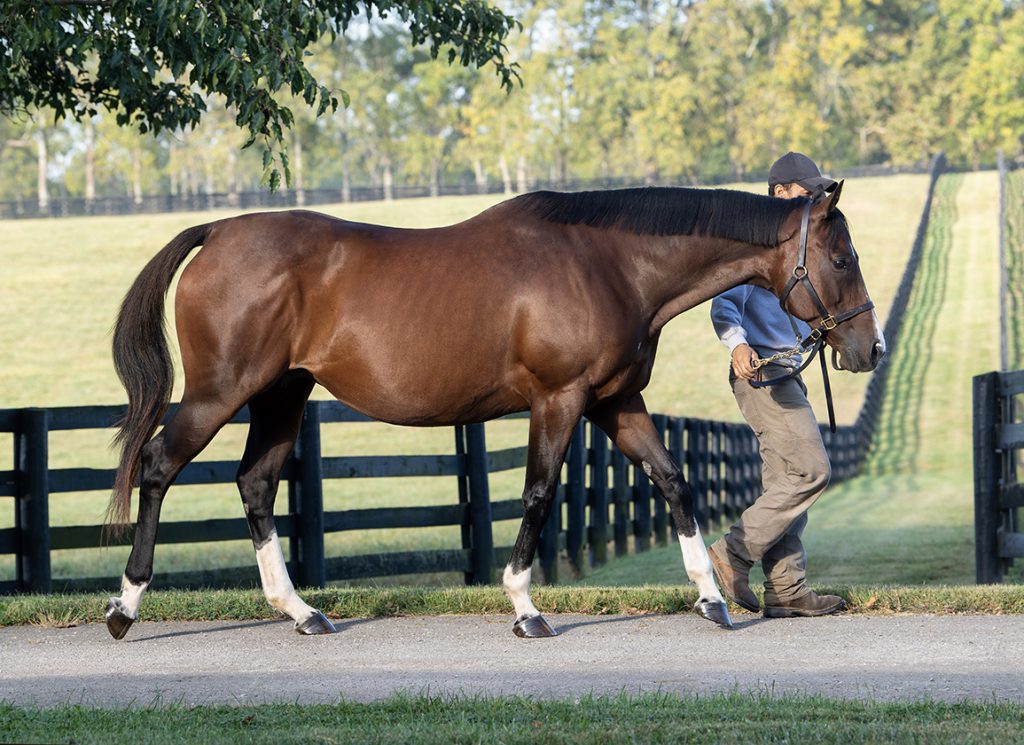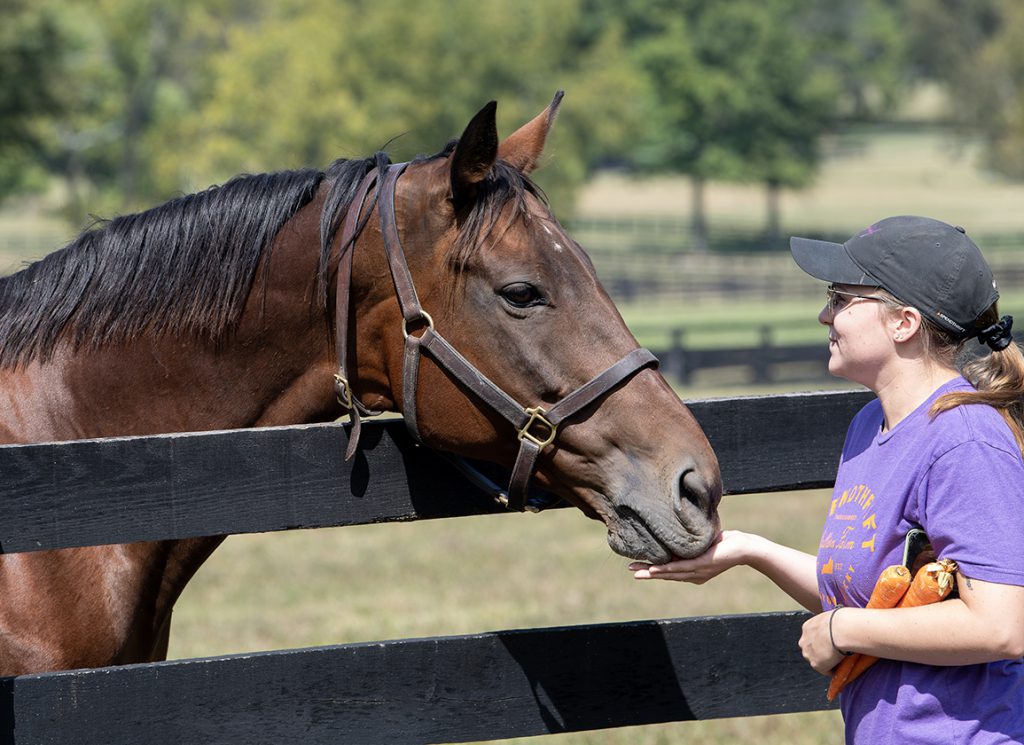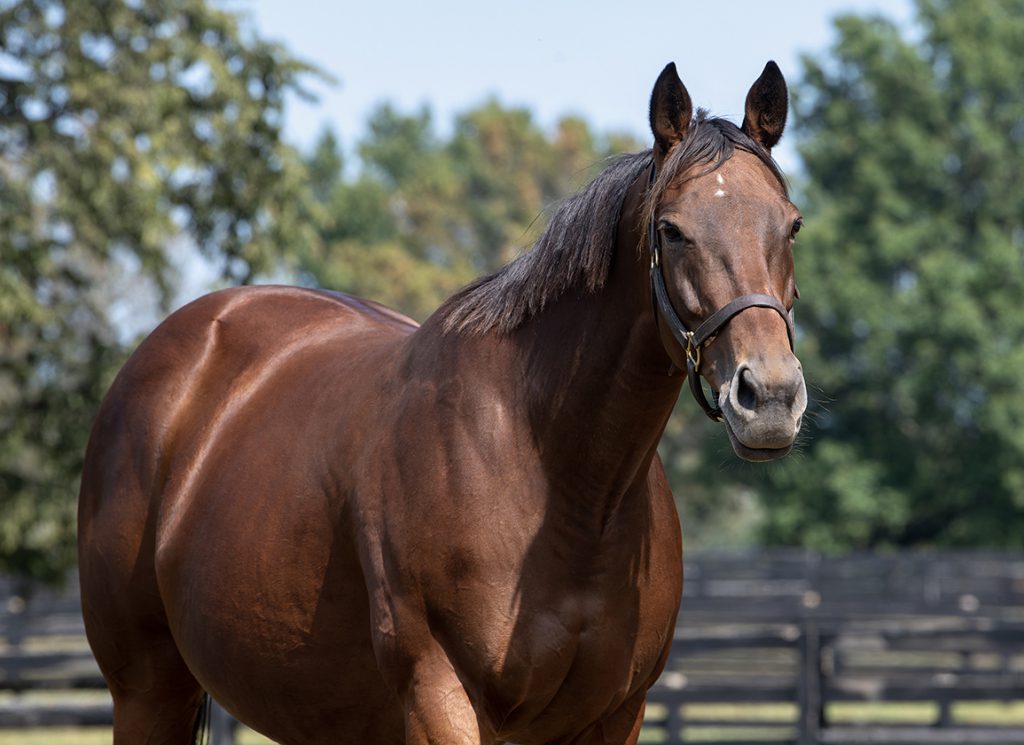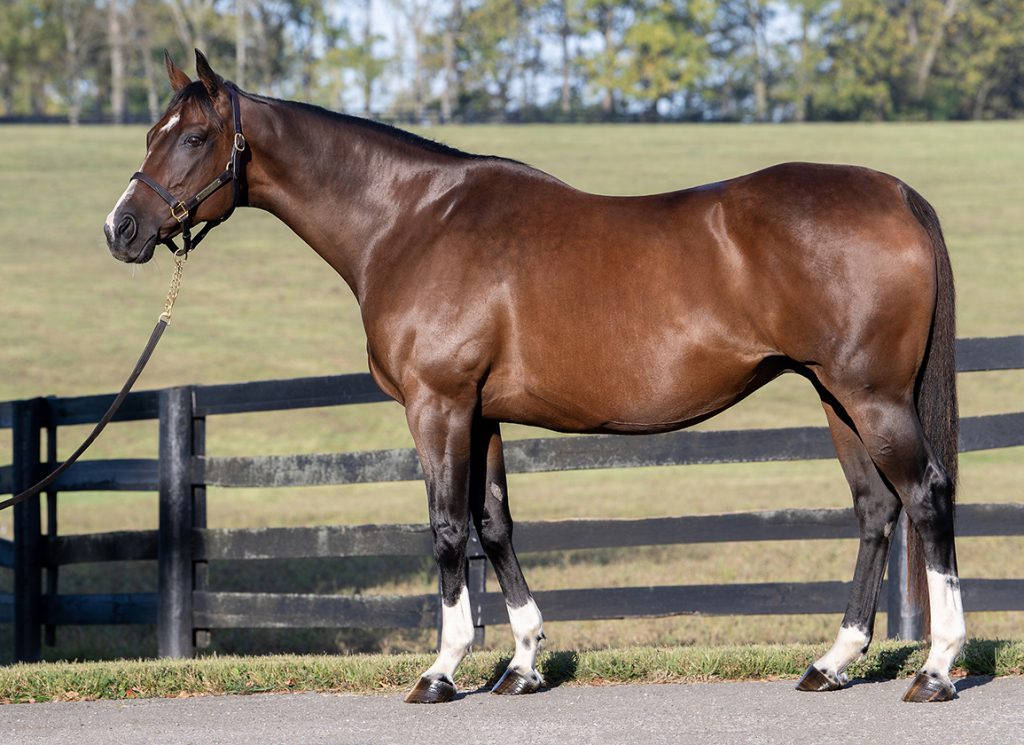Celebrating 40 Years of the Breeders' Cup with Living Legends
Each race–particularly a Breeders' Cup win–is special to the connections of the winner, but some races stand out more than others in all who are lucky enough to witness them. Some get embedded in the mind and take up permanent residence there. Just about everyone in racing can recall in vivid detail Arazi's scintillating 1991 Juvenile or Personal Ensign's electrifying 1988 Distaff or Tiznow's gripping 2001 Classic. Each of those are among the transcendent performances in our sport that stir the soul, both for those who witnessed them in person or live on television and even in newer racing devotees who discover them for the first time.
Without a doubt, the 2016 GI Breeders' Cup Distaff ranks among the best races in Breeders' Cup history. Two already-beloved Breeders' Cup winners and future Hall of Famers locked horns in what would prove a race for the ages, only to finish millimeters apart at the wire.
To jog the memory, that year's Distaff was the last Breeders' Cup race on Friday's card at Santa Anita and the final race of Beholder's stellar career. The Spendthrift colorbearer was already a three-time Eclipse champion, a 10-time Grade I winner, and a dual Breeders' Cup winner. However, after three straight runner-up finishes and certainly in the twilight of her career at the age of six, there were whispers that perhaps the great mare's best days were behind her.
“I was really nervous about it going in because I wasn't quite sure she was the same Beholder as a 6-year-old as she had been her 5-year-old year,” said Ned Toffey, general manager at Spendthrift. “I remember the next day wondering why my hands were sore and it was because I was pounding on the box, pounding on the wall as they were coming down the stretch, cheering her home.”
For her part, the Fox Hill-owned Songbird was no slouch either as an undefeated 3-year-old filly. Her previous 11 starts–and wins–included seven Grade I victories and the last year's Breeders' Cup Juvenile Fillies, as well as an Eclipse championship of her own. The question facing her was how she would handle older mares for the first time, especially one as tough as Beholder.
“With her first Breeders' Cup, I don't think we've ever had a horse we were as confident in,” said Victoria Keith, Fox Hill Farm's vice president at the time. “You get really, really spoiled by a horse of her caliber. With [Fox Hill's] Havre de Grace and Hard Spun, you knew they were going to give a good effort, but with Songbird, you got the idea she was invincible.
“This race was the toughest competition. When you're going to be meeting up with Beholder…” Keith trailed off. “l always feel when two great horses meet each other, the [older horse] is going to have the physical advantage even with a weight allowance. The fact that Songbird ran so well was something to be so proud of.”
It was exactly the type of showdown we all crave and that so rarely comes to fruition. Both were clearly at their best that day. Of course, there were a number of other top fillies and mares in that year's Distaff, but they were all running for third.
In a stretch run reminiscent of Sunday Silence and Easy Goer in the 1989 Preakness or Affirmed and Alydar in the 1978 Belmont, Songbird and Beholder exited that final bend together and threw it all down. Nose to nose for stride after pulsating stride, neither deserved to lose.
“We had a bad angle on the wire and it looked to me like Songbird had gotten her nose down on the wire,” said Toffey. “It was a great race. Two champions, two gutsy, courageous mares. Those are the kind we're' all looking for.”
Keith had the same thoughts. “We all stood there and thought Songbird had won. From our angle it certainly looked like she'd nosed out Beholder. We were so proud to be part of that race, one that is considered to be one of the best Breeders' Cup races ever.”
In the end, the photo showed Beholder's nostrils just a hair breadth in front at the wire, but the bob could just as easily have gone to Songbird. Both had given their best, neither had disappointed, and the two have been inextricably linked since.
“We were waiting for [the photo] and when it came down, I remember the look on [Fox Hill owner] Rick [Porter]'s face,” said Keith. “At first, we were so disappointed, so sure it was us, and then so proud that the disappointment didn't last long.”
The Spendthrift team had the opposite experience, initially believing they'd lost the photo and then realizing they'd won the epic battle.
“Our group was ecstatic. Just jubilation,” said Toffey. “We all knew going in that it was going to be Beholder's last start. At six, it was time to be retired and be bred. It was funny because there wasn't a sense of pressure because she'd had such a remarkable career already, having won a Grade I at two, three, four, five, and six. It was, in some ways, an unprecedented career.
“Songbird was a worthy adversary and she certainly didn't disappoint. It was a really, really fitting way for Beholder to wrap up one of the greatest careers we've seen, a great and fitting way to cap her career.”
Both Beholder and Songbird earned year-end championships in their respective divisions. Beholder became only the second horse in history to win three Breeders' Cup races.
Despite officially losing what would become a match race, Songbird inspired enduring respect and a legion of hashtags on social media claiming #SongbirdWon.
Both owners of the two champions have since passed away: Fox Hill's Rick Porter in June, 2021 and Spendthrift's B. Wayne Hughes two months later.
“Probably one of my favorite memories is that Rick and Mr. Hughes became friends,” reminisced Keith. “One time [Hughes] invited us to his house to show us his guest bathroom downstairs with custom wallpaper of Songbird and Beholder. Obviously for him to do something like that showed how equally proud he was. Those two gentlemen were two of the finer men in racing. Both were so proud to be part of that race and those two fillies. That's what is so special about it to me.”
Both mares have continued to make headlines. Beholder was retired after the Distaff to Spendthrift Farm.
“It was huge for us to bring her home,” said Toffey. “There are obviously plenty of nice mares on the farm, plenty of nice horses, but when you have a horse like that get off the van, there's a little added sense of pressure to the task of getting her let down safely and settled into farm life, plus to go on and get her bred, all those things.
“[Trainer Richard] Mandella did such a great job taking care of her at the track. It was very gratifying for her to come home and to hope she was going to come in and have a good, long career. A horse like that sort of picks everybody's head up on the farm. There's a sense of pride, something really special about it, how it lifts everyone's morale.”
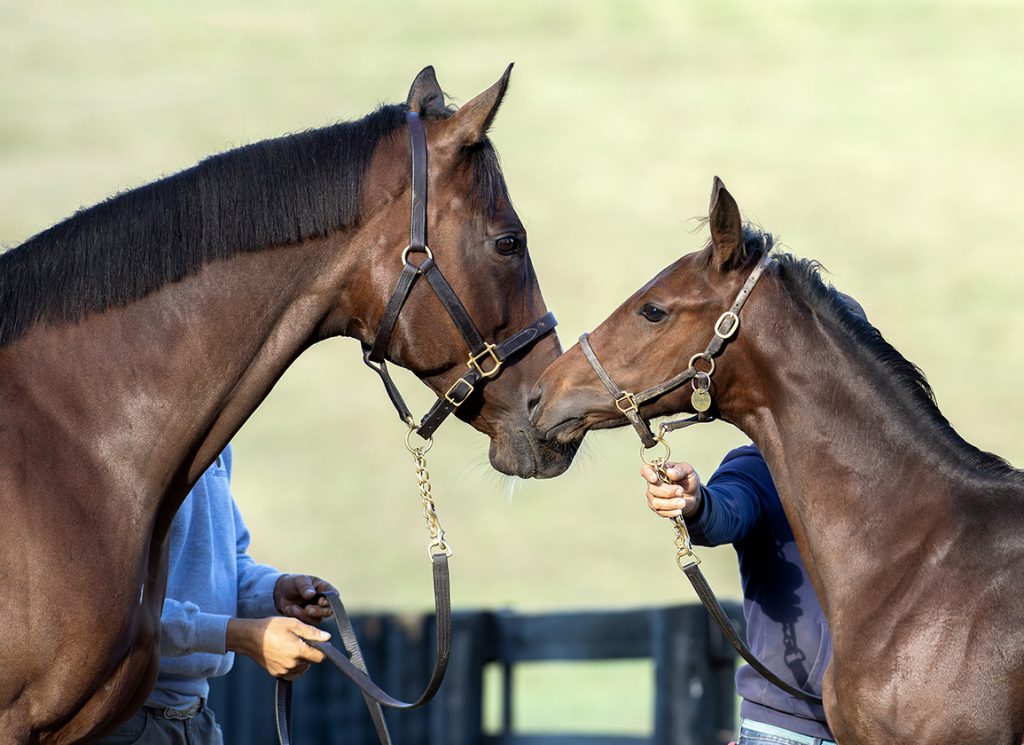
Songbird with her Curlin filly | Sarah Andrew
Each foal has been eagerly anticipated, with the farm willingly sharing updates with the public. Beholder's first two foals did not live up to her lofty standards at the track, but her next three have each made headlines in 2023. There is a sense that she is just getting started as a producer despite a slower start.
Her first foal, Q B One (Uncle Mo), did not win at the racetrack. He is now a 5-year-old and has been gelded.
“He is a young lady's show horse,” said Toffey. “He has a great, great home, goes to horse shows regularly. He was not an easy horse. If he had almost any other pedigree, he would have been gelded sooner as he was a little bit of a rogue. He had a hard time concentrating on doing his job, so it was hard to get an assessment of his talent level, but he didn't show a lot of focus.”
Karin With an I (Curlin), Beholder's 4-year-old, was unplaced in two starts.
“She is back here at Spendthrift,” said Toffey. “She's a beautiful filly, very strong, marked sort of similarly to Beholder. For whatever reason, she didn't demonstrate a lot of talent. She is in foal to [Spendthrift's Kentucky Derby and Breeders' Cup Classic winner] Authentic.
“The mating was always interesting. We were waiting to do it for a generation or so because there's some thought of inbreeding to superior females. The foal will be 3×3 to Leslie's Lady. We're excited about the potential there.”
Leslie's Lady, of course, was the Broodmare of the Year who produced both Beholder and Into Mischief, Spendthrift's record-breaking four-time leading sire.
Beholder's current 3-year-old filly, Teena Ella (War Front), became her first winner in February and then went one better by capturing the GIII Senorita S. in May. Toffey said she is the least impressive physically of Beholder's foals to date, as she is “somewhat short and compact, but definitely had a little bit of zip to her.” He said she was just starting to come into her own, but had some niggling issues and will be retired and bred this coming year.
A graded winner is a wonderful accomplishment for any broodmare, but Beholder is not just any mare. In hindsight, she was just warming up with Teena Ella. Her 2-year-old filly has since become the undefeated 'TDN Rising Star' and facile GI Del Mar Debutante S. winner Tamara (Bolt d'Oro), who has given flashbacks of her brilliant dam. Tamara is targeting the Breeders' Cup Juvenile Fillies, which Beholder won 11 years ago. And then, of course, there's Beholder's yearling colt by Curlin, who topped August's Fasig-Tipton Saratoga Sale when realizing $4 million from agent Donato Lanni on behalf of Zedan Racing.
Beholder was barren to the cover of Gun Runner this year. She is in foal to Jackie's Warrior for 2024.
“There was a time when Mr. Hughes thought about selling Beholder,” said Toffey. “It was early in her career, but she developed a fever which kept us from shipping her to Fasig-Tipton. That may have been some of the best luck we've ever had. Mr. Hughes had a saying, 'This is the damnedest business, because at the time when you have luck, you don't even know for a couple of years whether it's good luck or bad luck.' How fortunate that led us to keep her. After her win [over males in the 2015 GI] Pacific Classic, there was no selling her. Some of the best luck.
“There is something really special about Beholder,” continued Toffey. “She's only a little bit bigger than average. She's a good, strong filly, not huge, but now on the farm she's grown and developed and is that much bigger. She has a tremendous presence about her that you would get a sense of even if you didn't know who she was. She sort of knows that she's special. There's a presence and a substance to her that really strands out.”
Songbird had a slightly different journey than her biggest rival after the 2016 Distaff. She briefly raced the next summer, adding two more Grade I wins to her extensive CV, then topped Fasig-Tipton's November Sale as a $9.5-million broodmare prospect when Mandy Pope's Whisper Hill Farm LLC won the bidding war.
“While it was hard [to say goodbye to Songbird], Rick was never really into breeding,” said Keith. “He had tried his hand at it a little bit earlier and thought about buying a farm in Lexington, but it didn't pan out and he didn't really want to board them elsewhere. Rick loved the horses but was also very disciplined. For him that meant there was a certain amount of money he'd spend at auction and from that crop there would be a very small percentage that would pay for the rest, not on the track, but in selling. That enabled him to keep in the black by having that discipline.
“He had to be able to sell the valuable breeding prospects. The good thing is that he was at the level in racing that you know the person who is going to buy the horse is going to be a good owner, and give certainly as good a home as we'd ever give the horse. It was exciting for him to see his horses do well in every area. The businessman in him was very disciplined in that.”
Like Beholder, Songbird did not immediately find success with her first foals, but each foal brings renewed promise and hope. Also like Beholder, she too sent her first yearling to the sales this year. Songbird's Curlin colt was a $1-million Book 1 purchase by Grandview Equine at the Keeneland September Sale.
Songbird's initial foal, the unraced Arrogate filly Song Gate, produced her first foal, a filly by Tapit, this year. Songbird's 3-year-old filly, Magical Song (Tapit), last raced at Saratoga Aug. 18 for trainer Todd Pletcher but has not yet found the winner's circle. She also has an unraced 2-year-old filly by Tapit, as well as that seven-figure Keeneland yearling. Songbird produced another Curlin foal, a filly this time, May 1 and has been bred back to Gun Runner.
“I've watched her from afar,” said Keith. “She was such a sweetheart, it's sort of unbelievable to me how sweet she was [and yet such a competitor]. The most you can hope for in racing is that you've been blessed enough to own a horse like that.
“Rick was very blessed and I got to ride along on the coattails. I got to live vicariously. It was so fun, a very special journey. I wish everyone in horse racing could experience it.”
The post Beholder and Songbird, Inextricably Linked After the 2016 Distaff appeared first on TDN | Thoroughbred Daily News | Horse Racing News, Results and Video | Thoroughbred Breeding and Auctions.
